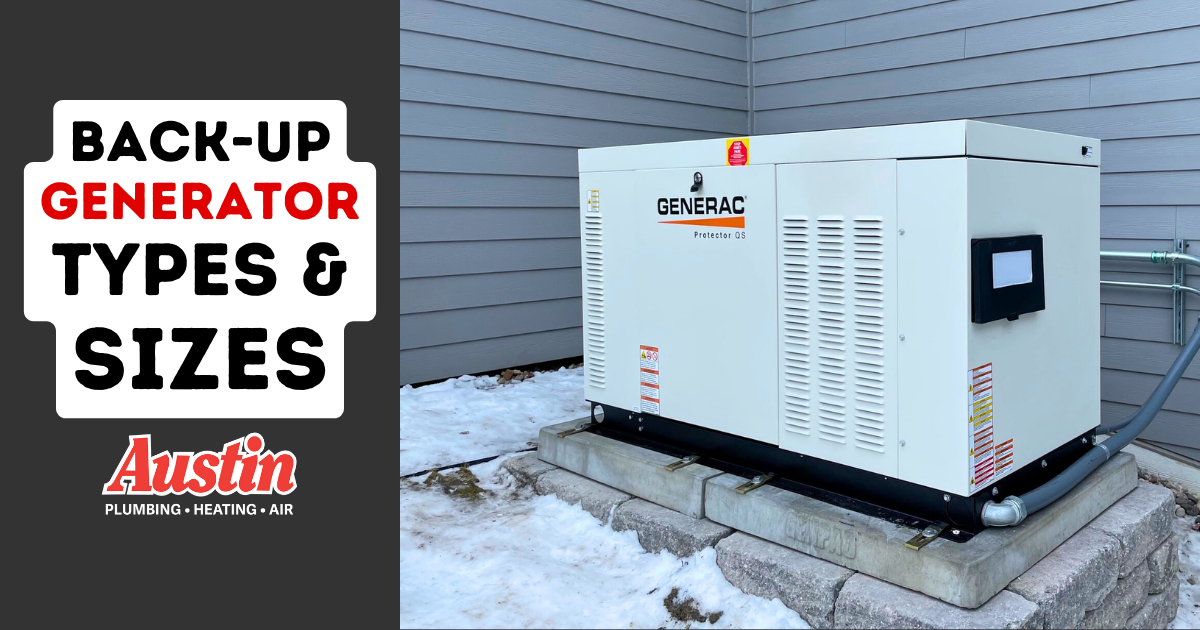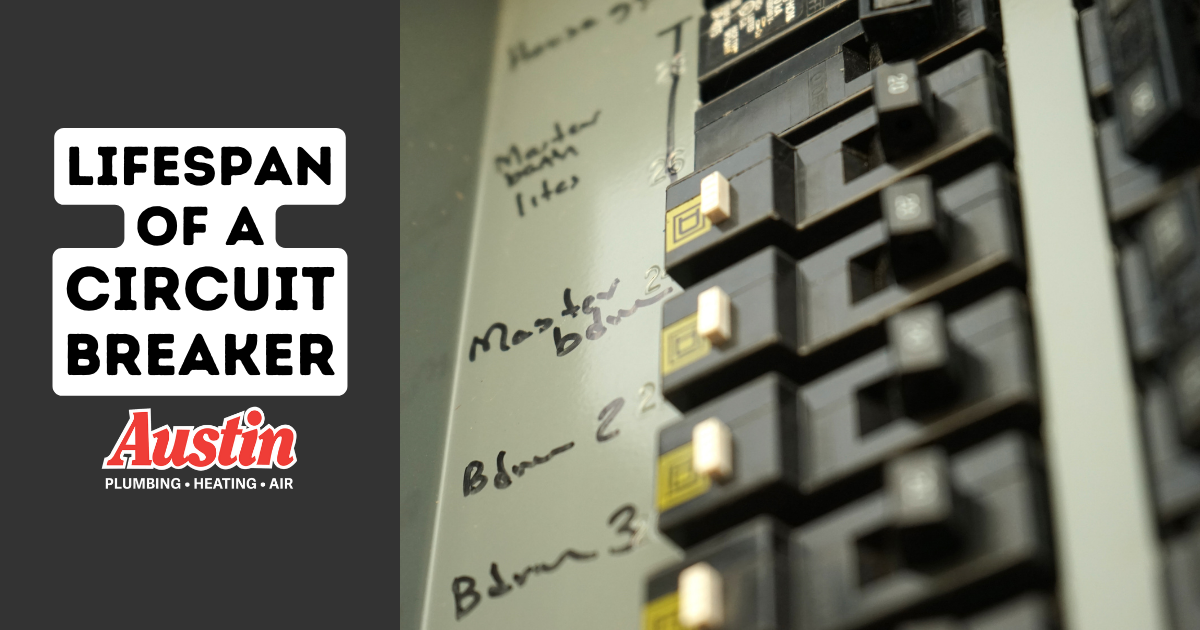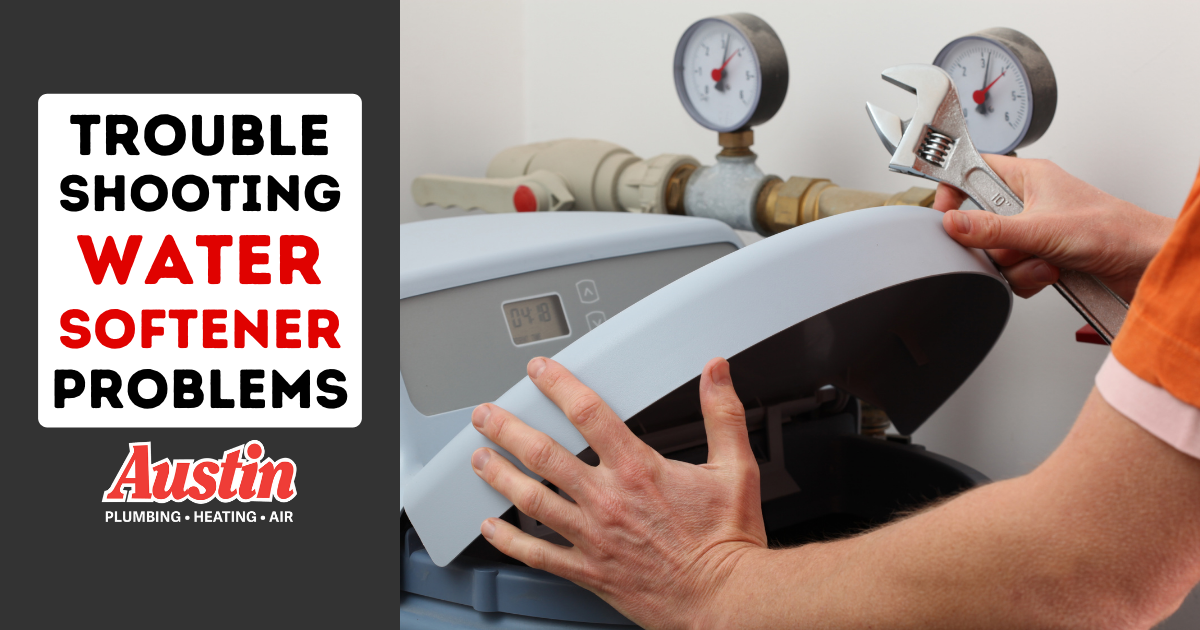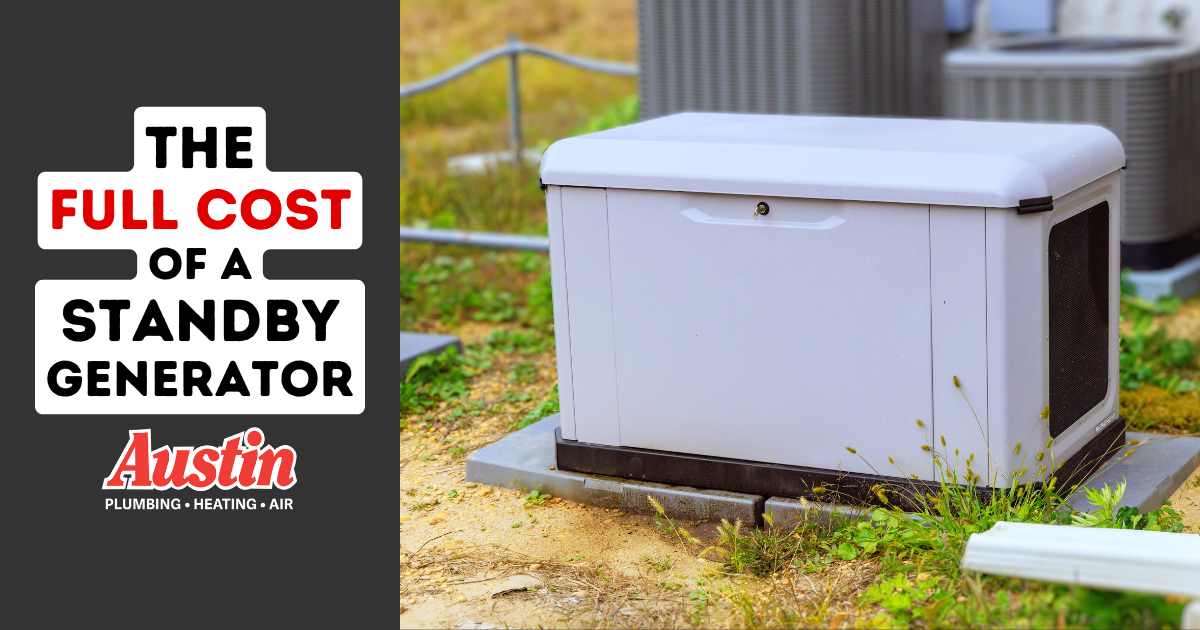What Size Generator Does My Home Need?

A whole-house generator sizing guide by Wisconsin’s Master Tradesman.
Southeastern Wisconsin has had a very reliable power grid, but as many homeowners in our market are realizing, the frequency and duration of widespread power outages seems to be on the rise.
Perhaps this is because of a change of weather conditions or perhaps there is excess taxing on our power grid. Regardless of the reasons for these prolonged outages, the need for a whole-home emergency backup generator has never been higher.
What kind of generator is sufficient to run a house?
- To run an averaged-sized home in Wisconsin without sacrificing any circuits, an 18kW+ generator is ideal.
- For homeowners who are only looking to power essential circuits + central AC, a 10kW generator is ideal.
Major Factors to Consider When Choosing a Generator
Power outages lasting for weeks or days can cause significant damage to plumbing systems (as we learned in January of 2024) and major inconveniences when they happen during the summer. If you’re a Wisconsin homeowner who has an active sump pump, suffers from severe allergies, requires medical equipment, or keeps animals or livestock, being without power for an extended period of time can be life-threatening.
If you need (or want) constant access to power, a standby generator is a cost-effective way to ensure peace of mind during such emergency situations. Below are some questions to ask yourself before selecting one.
1. How often are you left without power?
An obvious part of the decision when choosing a standby generator is how often you’re going to need to use it. Some areas seem to lose power much more frequently than others. Homes that rarely suffer power loss can typically get by with a smaller standby generator, whereas a larger generator may be required in loss-heavy areas for households to function without constant interruptions.
2. Will being without power cause property damage or be life threatening?
The next major factor to consider is how important it is to have power in your home 100% of the time. For many, being without power simply means it may be a bit uncomfortable during a hot summer day or night, but for others it can mean flooded basements or the inability to use essential medical equipment. If your home is at the risk of flooding or pipes breaking during a long power outage, or you rely on electricity for medical devices, keep this in mind when choosing the size and type of emergency generator to purchase.
3. Do you just need to get by? Or run your entire household?
After evaluating how often you are without electricity and how severely you’re impacted by instances of power loss, the final determination to make is this: how much of your home’s daily operations are absolutely necessary?
For homeowners that don’t mind being without air conditioning, heat, or water, you can probably get by with a small, portable, gasoline-fueled generator.
If you’re someone who is without electricity often and want to be able to run your entire household as if the main power grid never went down, you’ll want to invest in a larger generator so that you can accomplish this.
Generator Power, Size, and Corresponding User Experience
Generators are sized by the amount of power or wattage they can produce per hour. But rather than focusing on complex calculations, for simplicity’s sake this guide will compare the three most common sizes used for residential power generators.
Under 7kW Generators (Portable Units)
Any generator that is under 7kW is typically considered portable, not a whole-home solution. These units are great for being able to power a freezer or two for a short period of time, but often run on gasoline therefore risk running out of fuel if an outage goes on too long. A portable generator is only a good choice for people who rarely experience power outages and are at little-to-no risk of property damage as a result.
7kW-11kW Generators (The Essentials Only)
Whole-home generators begin in this range, although they technically fall just short of being able to power every single appliance and system.. Between seven and 11 kilowatts, these generators can normally provide enough power for the essentials in the house, such as critical lights, garage door openers, refrigerators, freezers, and sump pumps.
11kW-15kW Generators (Essentials + Air Conditioning)
These units represent the middle ground between a whole-home standby generator that just powers the essential circuits in the home and the larger units that can power an entire household. When working with homeowners in Southeastern Wisconsin to help them choose a generator, often the client wants to make sure that during extreme heat or cold, they are not left without heating or air conditioning. A 14kW whole-home generator has enough wattage to power the essential circuits plus your central air conditioning system without fail.
16kW-24kW (for average sized homes, whole-home solution)
If you don’t want to have to pick which circuits get power and which ones don’t in the event of a power outage, you should look in this range. Whole-home generators in this range are generally large enough to power a typical household to its full electrical capacity during a power outage.
25kW and larger (for larger homes, whole-home solution)
If your home has multiple air conditioning systems and/or outbuildings, as well as a generally high electrical demand, a unit over 25kW may be necessary.
Why Generator Size Matters
Installing the correct size of generator is crucial for ensuring the safety, efficiency, reliability, and performance of the generator itself.
- A generator that is too small may struggle to provide enough power for all the necessary equipment in a household, leading to inefficient energy use, high electrical bills, and worst of all, potential outages–the very thing you were trying to avoid!
- On the other hand, a generator that is too big can lead to fuel wastage, decreased efficiency, and money lost over time.
Before Team Austin installs any generator, one of our electricians will perform an in-depth home energy audit and provide guidance on what size generator is right for you, your home, and your budget.
Reasons to Invest in a Whole-House Generator
-
Peace of mind
Perhaps the most important and valuable part of getting a generator installed is the peace of mind it brings. The fear of flooded baseboards, frozen pipes, and being without air conditioning is overwhelming to most. Having a whole-home standby generator installed will keep the lights on, as well as the water, heat, and air conditioning working 24/7, no matter what storms come your way.
-
Add marketability and value to your home
Having an emergency standby generator in a home, particularly homes of higher value in Southeastern Wisconsin, is becoming an expectation nowadays. Whole-home standby generators add significant market value and marketability to homes of all price points throughout our service area.
-
Protect your basement from flooding
Many homes in Southeastern Wisconsin, particularly around the lakes in the Lake Country area, have sump pumps due to the high groundwater environment. And those sump pumps require constant power. During a power outage, a whole-home standby generator is what stands between your home and the threat of flooding and property damage.
-
Reduce insurance premiums
Not everybody knows this, but many insurance companies actually offer a credit or reduction in premium to homeowners that have whole-home standby generators installed. It relieves some of their burden when dealing with power grid failures.
Team Austin’s Whole-House Generator Installation and Maintenance Services
Because your whole-house generator is essential for ensuring your safety and comfort during outages, Team Austin cuts no corners during the design, installation, maintenance or repair of your generator.
During installation, our team makes sure that every detail of your installation is handled with white-glove service. The unit is set up according to best practices and calibrated properly to ensure safe and reliable operation. Long before installation day, we will work transparently with you to make sure you’re getting the appropriate size of generator for your needs.
On top of our whole-house generator services, we employ a top-notch group of certified electricians who provide every electrical service you could ask for–from panel upgrades and wiring repairs to electric vehicle charging stations!
To schedule a visit with one of our friendly electrical experts, just give us a call at 262-367-3808.




